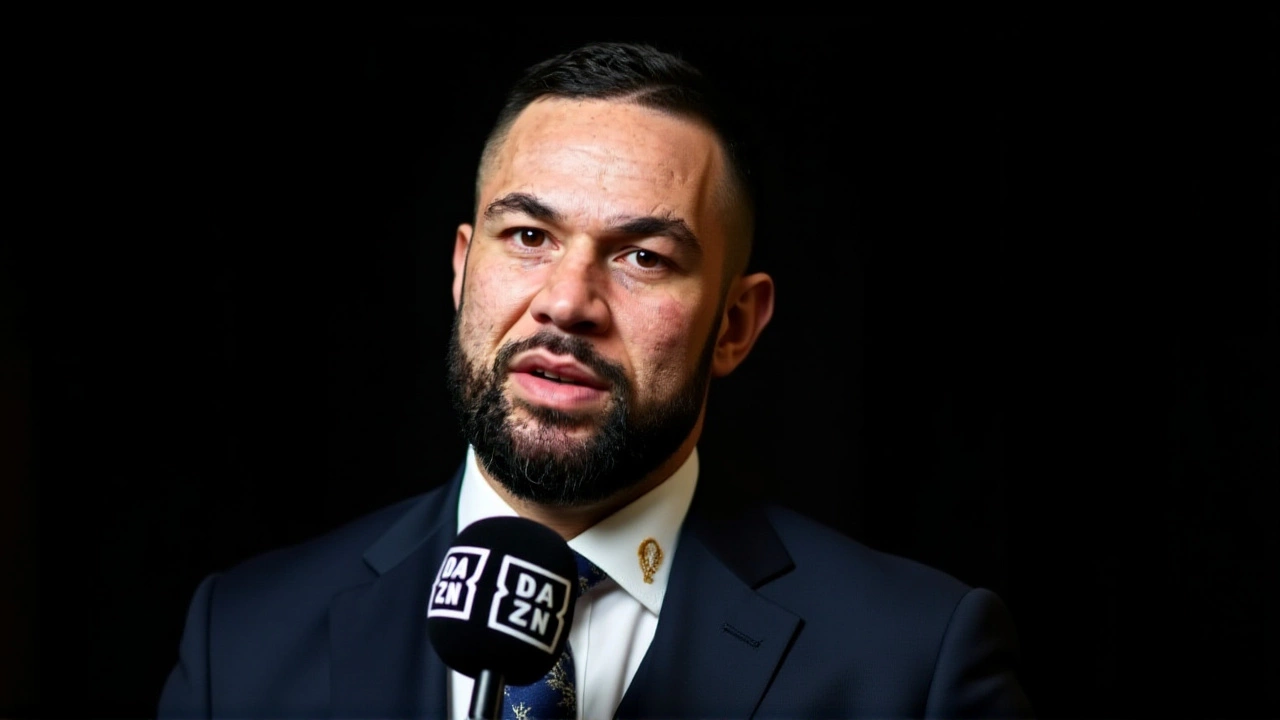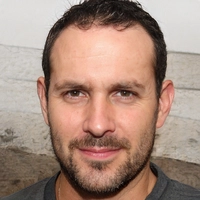When Joseph David Parker stepped off the scales after his fight with Fabio Wardley at London’s O2 Arena on October 25, 2024, he thought he’d done enough to reignite his path to a world title. Instead, he walked into a scandal that could end his career. Three weeks later, Queensberry Promotions confirmed what The Irish Sun had reported: Parker’s post-fight urine sample tested positive for cocaine. The news dropped on November 14, and by the next morning, Parker was on Instagram, eyes wide, voice steady: “I did not take any prohibited substance.” Here’s the thing—he’s never been caught like this before. But now, his future in boxing hangs by a thread.
What Happened at the O2 Arena?
Parker, 32, entered the ring as the WBO’s mandatory challenger, aiming to force a unification bout with undisputed champion Oleksandr Usyk. He’d bounced back from a brutal 2022 loss to Joe Joyce, winning four straight fights under trainer Lee. Against Wardley, he was ahead on two scorecards through 10 rounds. The stoppage in round 11—after a flurry of unanswered punches—left fans divided. Some called it premature. Others said Parker had lost his composure. What no one saw coming was the result of the VADA test taken that same night.
The VADA Test and the Rules
Coordinated by Voluntary Anti-Doping Association (VADA), the test was part of Queensberry Promotions’ voluntary program—a move meant to bolster credibility in an industry still haunted by past doping scandals. VADA, founded in 2002 and based in Colorado, isn’t a government agency. It’s an independent nonprofit trusted by fighters who want to prove they’re clean. Cocaine, while banned under the World Anti-Doping Code, isn’t classified as a performance-enhancing drug. It’s a stimulant, yes—but in boxing, its primary risk is impairment, not enhancement. That’s why the penalty is still two years: the rules don’t care if you’re trying to get stronger. They care if you’re using a banned substance.
Parker’s Statement: Denial and Doubt
“This came as a real surprise to me,” Parker wrote. “I do not support their use.” He didn’t say he was framed. He didn’t blame the system. He just said he didn’t do it. And he’s not alone in that claim. In 2018, Tyson Fury tested positive for a similar substance and claimed contamination from a supplement. In 2021, Deontay Wilder was cleared after a positive test for a metabolite linked to cocaine use, citing trace amounts from passive exposure. Parker’s team now has the right to request a B-sample test—a second analysis of the same urine sample, sealed and stored under VADA protocols. That could take 7–10 days. If it confirms the A-sample, the suspension begins. If it doesn’t? The case collapses.
Who Benefits? Wardley’s Rise
Meanwhile, Fabio Wardley, 34, stands tall. His record now reads 20-0-1, with two dramatic comebacks in 2024—first against Justis Huni in June, then against Parker. He’s not just a contender anymore. He’s a name. The WBO could fast-track him for a title shot if Parker is suspended. Usyk, meanwhile, has been quiet since his last defense in April. The boxing world is watching. A Wardley-Usyk fight in early 2025? It’s not fantasy anymore. It’s plausible.
The Bigger Picture: Trust in Boxing’s Anti-Doping System
This case isn’t just about Parker. It’s about whether the voluntary system works. VADA has tested over 10,000 athletes since 2002. Only a handful have tested positive for recreational drugs like cocaine. Most are cleared after B-sample review. But public trust is fragile. When a former champion like Parker—three-time Olympian, former WBO titleholder—gets caught in this, fans wonder: Is this the exception? Or the tip of the iceberg? Queensberry Promotions, led by Frank Warren, has said nothing beyond their initial statement. That silence speaks volumes. No one wants to be the first to jump to conclusions. But in boxing, silence often looks like complicity.
What’s Next for Parker?
His trainer, Lee, has vanished from interviews. His camp hasn’t released a press conference. He hasn’t spoken to the media since Instagram. That’s not unusual—legal teams often advise silence. But it’s painful for fans who remember Parker’s 2016 title win over Andy Ruiz, or his emotional 2018 bout against Deontay Wilder. He was the guy who carried New Zealand’s boxing hopes. Now, he’s a cautionary tale. If the B-sample confirms the result, Parker faces a two-year ban. He’ll be 34 when eligible to return. Can he come back? Maybe. But the legacy? That’s already changed.
Frequently Asked Questions
Why is cocaine banned in boxing if it’s not a performance-enhancing drug?
Cocaine is banned under the World Anti-Doping Code as a stimulant that can mask pain, increase aggression, and impair judgment—risks that compromise fighter safety. While it doesn’t build muscle or boost endurance like steroids, its use can lead to reckless behavior in the ring. Boxing commissions prioritize athlete protection over performance advantage, which is why even recreational drug use carries a two-year suspension.
Can Joseph Parker still fight while the B-sample is being tested?
No. Under VADA and WADA protocols, fighters are provisionally suspended immediately after an adverse A-sample result. Even if the B-sample could clear him, he cannot compete until the process concludes. This is standard procedure to preserve the integrity of the testing system and prevent any potential advantage during an ongoing investigation.
What happens if the B-sample comes back negative?
If the B-sample is negative, the case is closed, and Parker is cleared. The positive result would be deemed a false positive—possibly due to contamination, lab error, or metabolic anomaly. VADA would issue a formal statement, and Parker could immediately resume training and fight scheduling. His WBO ranking would be reinstated, keeping his path to Oleksandr Usyk open.
How common are cocaine positives in professional boxing?
Extremely rare. Since 2010, fewer than 15 cases of cocaine positives have been reported in top-tier professional boxing, and nearly half were overturned after B-sample review. Most involve fighters who admitted recreational use outside competition. Parker’s case is unusual because he’s a high-profile athlete with no prior violations, and the test came from a voluntary program, not a mandatory one—making the result even more surprising.
Could Fabio Wardley get a title shot even if Parker is cleared?
Absolutely. Wardley’s win over Parker was decisive and earned him serious credibility. Even if Parker is cleared, the WBO may still rank Wardley as the mandatory challenger based on his undefeated record and recent performance. Title organizations often prioritize momentum and marketability over past rankings. A Wardley-Usyk fight remains highly likely regardless of Parker’s outcome.
Why hasn’t Frank Warren or Parker’s trainer made a public statement?
Legal teams in doping cases typically advise silence to avoid statements that could be used against the athlete in hearings or arbitration. Frank Warren, known for his aggressive promotion style, is likely waiting to see the B-sample result before speaking. Lee, Parker’s trainer since 2022, may be coordinating with legal counsel to prepare for a potential appeal. Public silence doesn’t imply guilt—it’s standard legal strategy.





Write a comment